List of members of the Universal Postal Union
The 192 members of the Universal Postal Union are listed below in alphabetical order, with the date of membership.[1] Members are the Vatican City and the 193 UN members except Andorra, Marshall Islands, the Federated States of Micronesia, and Palau. The newest member is South Sudan, which joined on 4 October 2011.
Before 10 July 1964, states became members of the UPU by ratifying the latest version of the Treaty of Bern. After this date, states become members by ratifying the Constitution of the Universal Postal Union, which incorporated the Treaty of Bern and added provisions to it. Three states which were party to the Treaty of Bern in 1964, and hence members of the UPU, and which have signed but never ratified the Constitution are members of the UPU Dominican Republic, Honduras, Sudan.[2] These states are deemed to have "tacitly ratified" the agreement due to their continued participation in the UPU.[3] Also included as members are two "joint memberships" for dependent territories (one for the British overseas territories and one for the Caribbean constituent countries (Dutch: landen) of the Kingdom of the Netherlands (Aruba, Curaçao and Sint Maarten), originally as Netherlands Antilles). Dependent territories are not permitted to ratify the UPU Constitution, but because the Treaty of Bern allowed for dependencies to join the UPU,[3] listing these members separately as "Colonies, Protectorates, etc.",[4] the Constitution of the Universal Postal Union grandfathered them when membership was restricted to sovereign states.[3][5] However, neither the British nor the Dutch entities ratified the Treaty of Bern separate from the ratifications of the United Kingdom and the Kingdom of the Netherlands, respectively.
By virtue of article 23 of the UPU Constitution, other dependencies of UPU member states are covered by its membership. Territories covered by a sovereign member state are listed under that country.
A
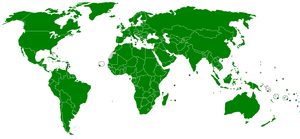
-
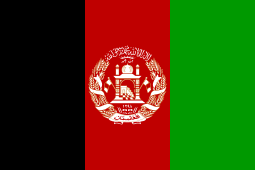 Afghanistan - 1 April 1928
Afghanistan - 1 April 1928 -
 Albania - 1 March 1922
Albania - 1 March 1922 -
 Algeria - 1 October 1907
Algeria - 1 October 1907 -
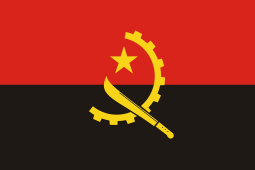 Angola - 1 March 1977
Angola - 1 March 1977 -
 Antigua and Barbuda - 20 January 1994
Antigua and Barbuda - 20 January 1994 -
 Argentina - 1 April 1878
Argentina - 1 April 1878 -
 Armenia - 14 October 1992
Armenia - 14 October 1992 - Aruba, Curaçao and Sint Maarten - 1 July 1875[Note 1][Note 2]
-
 Australia - 1 October 1907
Australia - 1 October 1907
-
 Austria - 1 July 1875[Note 3]
Austria - 1 July 1875[Note 3] -
 Azerbaijan - 1 April 1993
Azerbaijan - 1 April 1993
B
-
 Bahamas - 24 April 1974
Bahamas - 24 April 1974 -
 Bahrain - 21 December 1973
Bahrain - 21 December 1973 -
 Bangladesh - 7 February 1973
Bangladesh - 7 February 1973 -
 Barbados - 11 November 1967
Barbados - 11 November 1967 -
 Belarus - 13 May 1947[Note 4]
Belarus - 13 May 1947[Note 4] -
.svg.png) Belgium - 1 July 1875
Belgium - 1 July 1875 -
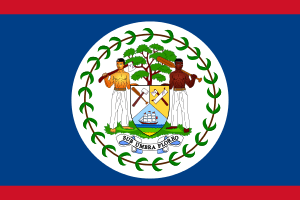 Belize - 1 October 1982
Belize - 1 October 1982 -
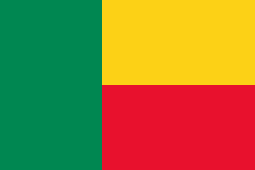 Benin - 27 April 1961
Benin - 27 April 1961 -
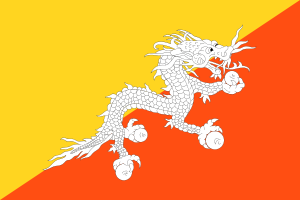 Bhutan - 7 March 1969
Bhutan - 7 March 1969 -
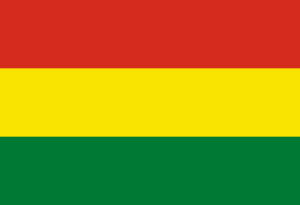 Bolivia - 1 April 1886
Bolivia - 1 April 1886 -
 Bosnia and Herzegovina - 26 January 1993
Bosnia and Herzegovina - 26 January 1993 -
 Botswana - 12 January 1968
Botswana - 12 January 1968 -
 Brazil - 1 July 1877[Note 5]
Brazil - 1 July 1877[Note 5] -
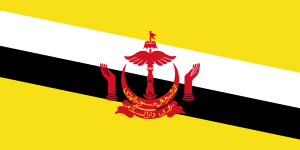 Brunei - 15 January 1985
Brunei - 15 January 1985 - British overseas territories - 1 April 1877[Note 1]
- Dependencies of St Helena
-
 Bulgaria - 1 July 1879
Bulgaria - 1 July 1879 -
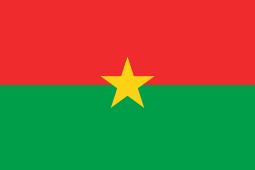 Burkina Faso - 29 March 1963[Note 6]
Burkina Faso - 29 March 1963[Note 6] -
 Burundi - 6 April 1963
Burundi - 6 April 1963
C
-
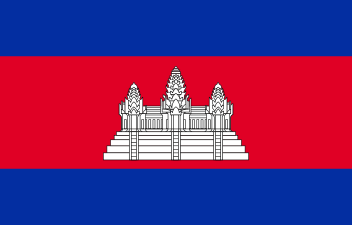 Cambodia - 21 December 1951
Cambodia - 21 December 1951 -
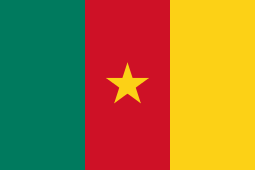 Cameroon - 26 July 1960
Cameroon - 26 July 1960 -
 Canada - 1 July 1878
Canada - 1 July 1878 -
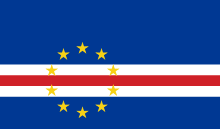 Cape Verde - 30 September 1976
Cape Verde - 30 September 1976 -
 Central African Republic - 28 June 1961
Central African Republic - 28 June 1961 -
 Chad - 23 June 1961
Chad - 23 June 1961 -
 Chile - 1 April 1881
Chile - 1 April 1881 -
 China - 1 March 1914[Note 7]
China - 1 March 1914[Note 7]
-
 Colombia - 1 July 1881
Colombia - 1 July 1881 -
 Comoros - 29 July 1976
Comoros - 29 July 1976 -
 Congo, Democratic Republic of the - 1 January 1886[Note 9]
Congo, Democratic Republic of the - 1 January 1886[Note 9] -
 Congo, Republic of - 5 July 1961
Congo, Republic of - 5 July 1961 -
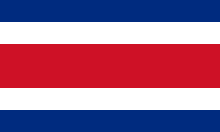 Costa Rica - 1 January 1883
Costa Rica - 1 January 1883 -
 Ivory Coast - 23 May 1961
Ivory Coast - 23 May 1961 -
 Croatia - 20 July 1992
Croatia - 20 July 1992 -
 Cuba - 4 October 1902
Cuba - 4 October 1902 -
 Cyprus - 23 November 1961
Cyprus - 23 November 1961 -
 Czech Republic - 18 March 1993
Czech Republic - 18 March 1993
D
-
 Denmark - 1 July 1875
Denmark - 1 July 1875
-
 Djibouti - 6 June 1978
Djibouti - 6 June 1978 -
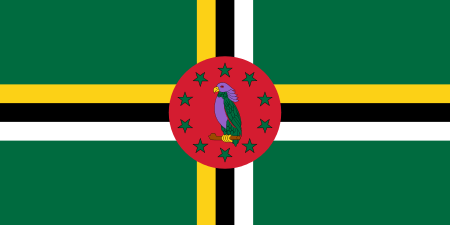 Dominica - 31 January 1980
Dominica - 31 January 1980 -
 Dominican Republic - 1 October 1880[Note 10]
Dominican Republic - 1 October 1880[Note 10]
E
-
 Ecuador - 1 July 1880
Ecuador - 1 July 1880 -
 Egypt - 1 July 1875[Note 11]
Egypt - 1 July 1875[Note 11] -
 El Salvador - 1 April 1879
El Salvador - 1 April 1879 -
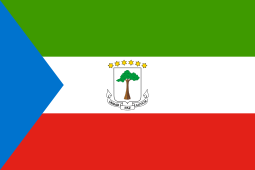 Equatorial Guinea - 24 July 1970
Equatorial Guinea - 24 July 1970 -
 Eritrea - 19 August 1993
Eritrea - 19 August 1993 -
 Estonia - 30 April 1992[Note 12]
Estonia - 30 April 1992[Note 12] -
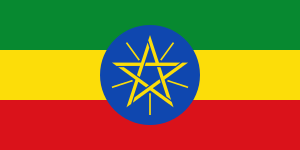 Ethiopia - 1 November 1908
Ethiopia - 1 November 1908
F
- French Overseas Departments
- Territories coming within the UPU's jurisdiction by virtue of article 23 of the UPU Constitution
G
-
 Gabon - 17 July 1961
Gabon - 17 July 1961 -
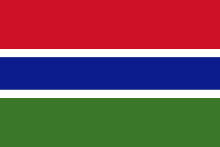 Gambia - 9 October 1974
Gambia - 9 October 1974 -
 Georgia - 1 April 1993
Georgia - 1 April 1993 -
 Germany - 1 July 1875
Germany - 1 July 1875 -
 Ghana - 10 October 1957
Ghana - 10 October 1957 -
 Greece - 1 July 1875
Greece - 1 July 1875 -
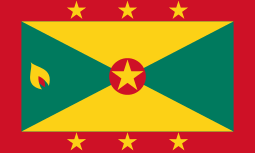 Grenada - 30 January 1978
Grenada - 30 January 1978 -
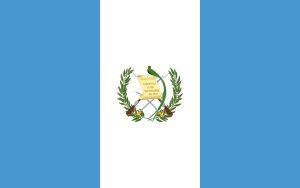 Guatemala - 1 August 1881
Guatemala - 1 August 1881 -
 Guinea - 6 May 1959
Guinea - 6 May 1959 -
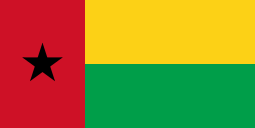 Guinea-Bissau - 30 May 1974
Guinea-Bissau - 30 May 1974 -
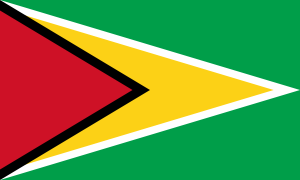 Guyana - 22 March 1967
Guyana - 22 March 1967
H
I
-
 Iceland - 15 November 1919
Iceland - 15 November 1919 -
 India - 1 July 1876
India - 1 July 1876 -
 Indonesia - 1 May 1877
Indonesia - 1 May 1877 -
 Iran - 1 September 1877
Iran - 1 September 1877 -
 Iraq - 22 April 1929
Iraq - 22 April 1929 -
 Ireland - 6 September 1923[Note 14]
Ireland - 6 September 1923[Note 14] -
 Israel - 24 December 1949
Israel - 24 December 1949 -
 Italy - 1 July 1875
Italy - 1 July 1875
J
K
-
 Kazakhstan - 27 August 1992
Kazakhstan - 27 August 1992 -
 Kenya - 27 October 1964
Kenya - 27 October 1964 -
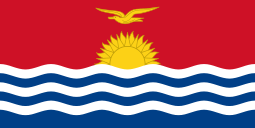 Kiribati - 14 August 1984
Kiribati - 14 August 1984 -
 Korea, Democratic People's Republic of - 6 June 1974
Korea, Democratic People's Republic of - 6 June 1974 -
 Korea, Republic of - 1 January 1900[Note 15]
Korea, Republic of - 1 January 1900[Note 15] -
 Kuwait - 16 February 1960
Kuwait - 16 February 1960 -
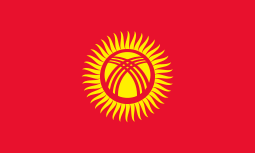 Kyrgyzstan - 26 January 1993
Kyrgyzstan - 26 January 1993
L
-
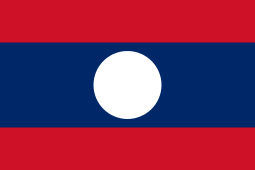 Laos - 20 May 1952
Laos - 20 May 1952 -
 Latvia - 17 June 1992[Note 16]
Latvia - 17 June 1992[Note 16] -
 Lebanon - 15 May 1946
Lebanon - 15 May 1946 -
 Lesotho - 6 September 1967
Lesotho - 6 September 1967 -
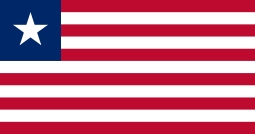 Liberia - 1 April 1879
Liberia - 1 April 1879 -
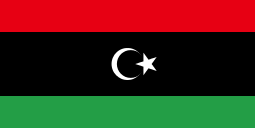 Libya - 4 June 1952
Libya - 4 June 1952 -
 Liechtenstein - 13 April 1962
Liechtenstein - 13 April 1962 -
 Lithuania - 10 January 1992[Note 17]
Lithuania - 10 January 1992[Note 17] -
 Luxembourg - 1 July 1875
Luxembourg - 1 July 1875
M
-
 Macedonia - 12 July 1993
Macedonia - 12 July 1993 -
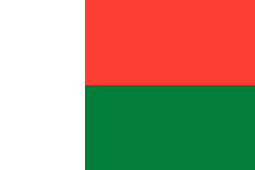 Madagascar - 2 November 1961
Madagascar - 2 November 1961 -
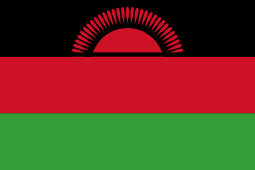 Malawi - 25 October 1966
Malawi - 25 October 1966 -
 Malaysia - 17 January 1958[Note 18]
Malaysia - 17 January 1958[Note 18] -
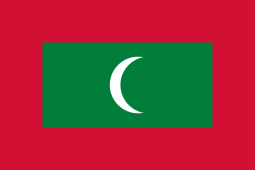 Maldives - 15 August 1967
Maldives - 15 August 1967 -
 Mali - 21 April 1961
Mali - 21 April 1961 -
 Malta - 21 May 1965
Malta - 21 May 1965 -
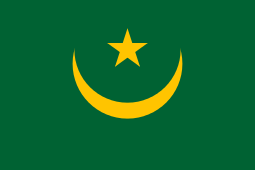 Mauritania - 22 March 1967
Mauritania - 22 March 1967 -
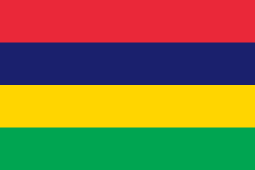 Mauritius - 29 August 1969
Mauritius - 29 August 1969 -
 Mexico - 1 April 1879
Mexico - 1 April 1879 -
 Moldova - 16 November 1992
Moldova - 16 November 1992 -
 Monaco - 12 October 1955
Monaco - 12 October 1955 -
 Mongolia - 24 August 1963
Mongolia - 24 August 1963 -
 Montenegro - 26 July 2006
Montenegro - 26 July 2006 -
 Morocco - 1 October 1920
Morocco - 1 October 1920 -
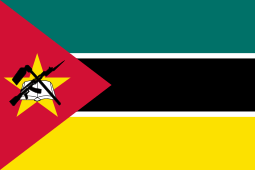 Mozambique - 11 October 1978
Mozambique - 11 October 1978 -
 Myanmar - 4 October 1949
Myanmar - 4 October 1949
N
-
 Namibia - 30 April 1992
Namibia - 30 April 1992 -
 Nauru - 17 April 1969
Nauru - 17 April 1969 -
 Nepal - 11 October 1956
Nepal - 11 October 1956 -
 Netherlands - 1 July 1875
Netherlands - 1 July 1875 -
 New Zealand (including the Ross Dependency) - 1 October 1907
New Zealand (including the Ross Dependency) - 1 October 1907
-
 Nicaragua - 1 May 1882
Nicaragua - 1 May 1882 -
 Niger - 12 June 1961
Niger - 12 June 1961 -
 Nigeria - 10 July 1961
Nigeria - 10 July 1961 -
 Norway - 1 July 1875[Note 19]
Norway - 1 July 1875[Note 19]
O
-
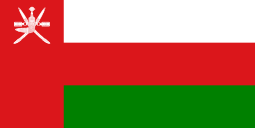 Oman - 17 August 1971
Oman - 17 August 1971
P
-
 Pakistan - 10 November 1947
Pakistan - 10 November 1947 -
 Panama - 11 June 1904
Panama - 11 June 1904 -
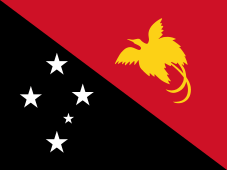 Papua New Guinea - 4 June 1976
Papua New Guinea - 4 June 1976 -
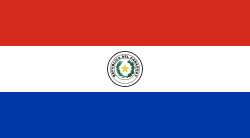 Paraguay - 1 July 1881
Paraguay - 1 July 1881 -
 Peru - 1 April 1879
Peru - 1 April 1879 -
 Philippines - 1 January 1922
Philippines - 1 January 1922 -
 Poland - 1 May 1919
Poland - 1 May 1919 -
 Portugal - 1 July 1875
Portugal - 1 July 1875
Q
-
 Qatar - 31 January 1969
Qatar - 31 January 1969
R
S
-
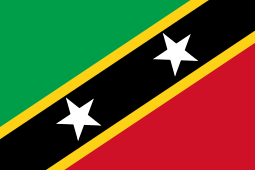 Saint Kitts and Nevis - 11 January 1988
Saint Kitts and Nevis - 11 January 1988 -
 Saint Lucia - 10 July 1980
Saint Lucia - 10 July 1980 -
 Saint Vincent and the Grenadines - 3 February 1981
Saint Vincent and the Grenadines - 3 February 1981 -
 Samoa - 9 August 1989
Samoa - 9 August 1989 -
 San Marino - 1 July 1915
San Marino - 1 July 1915 -
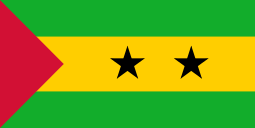 São Tomé and Príncipe - 22 August 1977
São Tomé and Príncipe - 22 August 1977 -
 Saudi Arabia - 1 January 1927[Note 21]
Saudi Arabia - 1 January 1927[Note 21] -
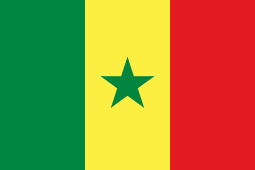 Senegal - 14 June 1961
Senegal - 14 June 1961 -
 Serbia - 18 June 2001[Note 22]
Serbia - 18 June 2001[Note 22] -
 Seychelles - 7 October 1977
Seychelles - 7 October 1977 -
 Sierra Leone - 29 January 1962
Sierra Leone - 29 January 1962 -
 Singapore - 8 January 1966
Singapore - 8 January 1966 -
 Slovakia - 18 March 1993
Slovakia - 18 March 1993 -
 Slovenia - 27 August 1992
Slovenia - 27 August 1992 -
 Solomon Islands - 4 May 1984
Solomon Islands - 4 May 1984 -
 Somalia - 1 April 1959
Somalia - 1 April 1959 -
 South Africa - 22 August 1994
South Africa - 22 August 1994 -
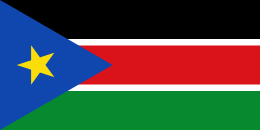 South Sudan - 4 October 2011[10]
South Sudan - 4 October 2011[10] -
 Spain - 1 July 1875
Spain - 1 July 1875 -
 Sri Lanka - 13 July 1949
Sri Lanka - 13 July 1949 -
 Sudan - 28 July 1956[Note 10]
Sudan - 28 July 1956[Note 10] -
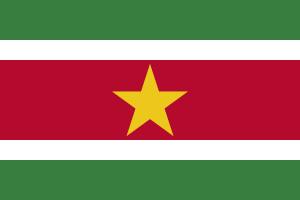 Suriname - 20 April 1976
Suriname - 20 April 1976 -
 Swaziland - 7 November 1969
Swaziland - 7 November 1969 -
 Sweden - 1 July 1875[Note 23]
Sweden - 1 July 1875[Note 23] -
 Switzerland - 1 July 1875
Switzerland - 1 July 1875 -
 Syria - 15 May 1946
Syria - 15 May 1946
T
-
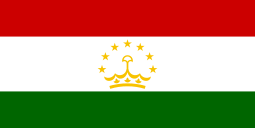 Tajikistan - 9 June 1994
Tajikistan - 9 June 1994 -
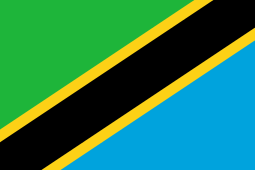 Tanzania - 29 March 1963[Note 24]
Tanzania - 29 March 1963[Note 24] -
 Thailand - 1 July 1885
Thailand - 1 July 1885 -
 Timor-Leste - 28 November 2003
Timor-Leste - 28 November 2003 -
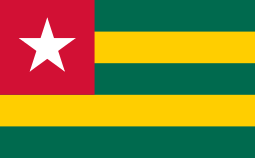 Togo - 21 March 1962
Togo - 21 March 1962 -
 Tonga (including Niuafo'ou) - 26 January 1972
Tonga (including Niuafo'ou) - 26 January 1972 -
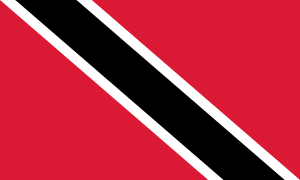 Trinidad and Tobago - 15 June 1963
Trinidad and Tobago - 15 June 1963 -
 Tunisia - 1 July 1888
Tunisia - 1 July 1888 -
 Turkey - 1 July 1875[Note 25]
Turkey - 1 July 1875[Note 25] -
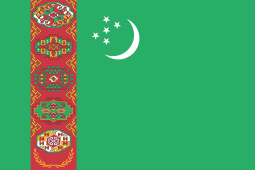 Turkmenistan - 26 January 1993
Turkmenistan - 26 January 1993 -
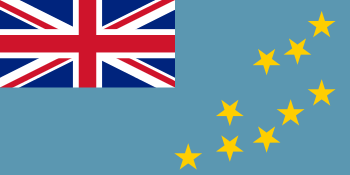 Tuvalu - 3 February 1981
Tuvalu - 3 February 1981
U
-
 Uganda - 13 February 1964
Uganda - 13 February 1964 -
 Ukraine - 13 May 1947[Note 26]
Ukraine - 13 May 1947[Note 26] -
 United Arab Emirates - 30 March 1973
United Arab Emirates - 30 March 1973 -
 United Kingdom - 1 July 1875
United Kingdom - 1 July 1875
- Acceded automatically as Crown dependencies of the United Kingdom
-
 United States - 1 July 1875
United States - 1 July 1875
- Territories coming within the UPU's jurisdiction by virtue of article 23 of the UPU Constitution
-
 Uruguay - 1 July 1880
Uruguay - 1 July 1880 -
 Uzbekistan - 24 February 1994
Uzbekistan - 24 February 1994
V
-
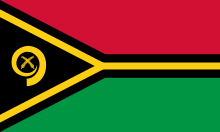 Vanuatu - 16 July 1982
Vanuatu - 16 July 1982 -
 Vatican City - 1 June 1929
Vatican City - 1 June 1929 -
 Venezuela - 1 January 1880
Venezuela - 1 January 1880 -
 Vietnam - 20 October 1951
Vietnam - 20 October 1951
Y
Z
Observer states and territories
-
 Palestine - special observer status to the UPU since 1999, West Bank mail delivered through Jordan since 2008.[11][12] From up to 2010 Gaza strip mail was delivered through Israel.[13]
Palestine - special observer status to the UPU since 1999, West Bank mail delivered through Jordan since 2008.[11][12] From up to 2010 Gaza strip mail was delivered through Israel.[13]
States, territories and entities not participating in UPU activities
-
 Andorra[14] - mail routed through France or Spain.
Andorra[14] - mail routed through France or Spain. -
 Marshall Islands (mail transportation handled by the United States Postal Service)
Marshall Islands (mail transportation handled by the United States Postal Service) -
 Federated States of Micronesia (mail transportation handled by the United States Postal Service)
Federated States of Micronesia (mail transportation handled by the United States Postal Service) -
 Palau (mail transportation handled by the United States Postal Service)
Palau (mail transportation handled by the United States Postal Service) -
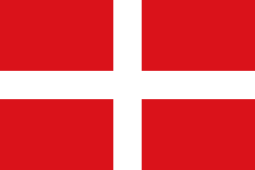 Order of Malta mail routed through Italy and additionally its stamps are accepted by 56 UPU members[15]
Order of Malta mail routed through Italy and additionally its stamps are accepted by 56 UPU members[15]
The states with limited recognition need to have their mail routed through third countries as the UPU will not allow direct international deliveries.
-
 Somaliland mail routed through Ethiopia
Somaliland mail routed through Ethiopia -
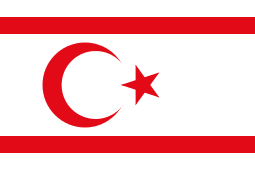 Northern Cyprus mail routed through Turkey
Northern Cyprus mail routed through Turkey -
 Kosovo mail routed through Serbia
Kosovo mail routed through Serbia -
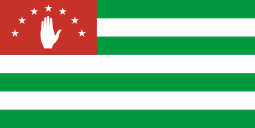 Abkhazia mail routed through Russia
Abkhazia mail routed through Russia -
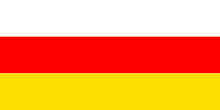 South Ossetia mail routed through Russia
South Ossetia mail routed through Russia -
 Nagorno-Karabakh mail routed through Armenia
Nagorno-Karabakh mail routed through Armenia -
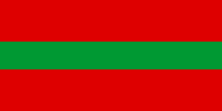 Transnistria mail routed through Moldova
Transnistria mail routed through Moldova -
 Sahrawi Republic mail routed through Algeria
Sahrawi Republic mail routed through Algeria -
 Taiwan (Republic of China) participated as member between 1 March 1914 and 13 April 1972.[Note 28] Mail addressed to Taiwan is routed through Japan, the United States, and formerly Hong Kong[16]
Taiwan (Republic of China) participated as member between 1 March 1914 and 13 April 1972.[Note 28] Mail addressed to Taiwan is routed through Japan, the United States, and formerly Hong Kong[16]
Former member countries of the UPU
In the course of history a number of member countries of the UPU saw their membership lapse, due to political changes. Where there was an immediate successor state, membership would normally devolve on that state. In other cases membership lapsed.
-
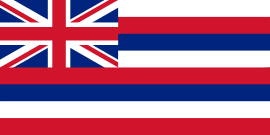 Kingdom of Hawaii - 21 March 1885 – July 4, 1898/August 21, 1959
Kingdom of Hawaii - 21 March 1885 – July 4, 1898/August 21, 1959 -
 Orange Free State - 1 January 1898 – 31 May 1902[Note 29]
Orange Free State - 1 January 1898 – 31 May 1902[Note 29] -
 South African Republic - 1 January 1895 – 31 May 1902[Note 30]
South African Republic - 1 January 1895 – 31 May 1902[Note 30] -
 Gold Coast - January 1879[19] – 1957 (Became Ghana)
Gold Coast - January 1879[19] – 1957 (Became Ghana)  Czechoslovakia -
Czechoslovakia -  Slovakia and the
Slovakia and the  Czech Republic ratified the treaty after Czechoslovakia dissolved in 1993.
Czech Republic ratified the treaty after Czechoslovakia dissolved in 1993.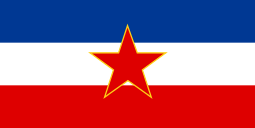 Yugoslavia
Yugoslavia Independent State of Croatia 1941-1945. Country ceased to exist
Independent State of Croatia 1941-1945. Country ceased to exist.svg.png) Korean Empire Country ceased to exist
Korean Empire Country ceased to exist
See also
- List of postal entities, a list of the postal authorities and operators of UPU members.
Notes
- 1 2 Dependent territory whose membership was grandfathered in by the Constitution.[3]
- ↑ These three entities are constituent countries of the Kingdom of the Netherlands, but have a joint UPU membership separate of that of the Netherlands. Prior to the dissolution of the Netherlands Antilles on 10 October 2010, Aruba and the then-Netherlands Antilles shared a common UPU membership. Upon dissolution, Curaçao and Sint Maarten became constituent countries within the Kingdom of the Netherlands; Bonaire, Sint Eustatius and Saba, now collectively known as the Caribbean Netherlands, became parts of the Netherlands proper.
- ↑ Ratified as Austria-Hungary.
- ↑ Ratified as the Byelorussian SSR.
- ↑ Ratified as the Empire of Brazil.
- ↑ Ratified as the Upper Volta.
- ↑ China was originally represented by the government of the Republic of China from 1914 to 1972. Since 13 April 1972, UPU has shifted its recognition to the government of People's Republic of China.
- ↑ Hong Kong was part of the British Overseas Territories joint membership from 1 April 1877 to 1 July 1997.[6] Hong Kong continues to participate in the Universal Postal Union after the transfer of sovereignty from the United Kingdom to China on 1 July 1997.[7]
- ↑ Ratified as the Congo Free State.
- 1 2 3 State which became a UPU member by ratifying the Treaty of Bern and which signed the Constitution, but which has not ratified it.[2] These states are deemed to have "tacitly ratified" the agreement due to their continued participation in the UPU.[3]
- ↑ Ratified as the Khedivate of Egypt.
- ↑ Originally joined on 7 July 1922 prior to Soviet occupation[8]
- ↑ Ratified as Austria-Hungary.
- ↑ Ratified as the Irish Free State.
- ↑ Ratified as the Korean Empire.
- ↑ Originally joined on 1 October 1921 prior to Soviet occupation[8]
- ↑ Originally joined on 1 January 1922 prior to Soviet occupation[8][9]
- ↑ Ratified as the Federation of Malaya.
- ↑ Ratified as the United Kingdoms of Sweden and Norway.
- ↑ Ratified as the Russian Empire. Continued membership as the Soviet Union from 1922–1991.
- ↑ Ratified as the Saudi Arabia (1926) Kingdom of Nejd and Hejaz.
- ↑ Ratified as the Serbia and Montenegro Federal Republic of Yugoslavia.
- ↑ Ratified as the United Kingdoms of Sweden and Norway.
- ↑ Ratified as Tanganyika.
- ↑ Ratified as the Ottoman Empire.
- ↑ Ratified as the Ukrainian SSR.
- ↑ Ratified as the Mutawakkilite Kingdom of Yemen.
- ↑ The Republic of China joined the UPU on 1 March 1914. After the People's Republic of China was founded, the Republic of China continued to represent China in the UPU, until the UPU decided on 13 April 1972 to recognize the People's Republic of China as the only legitimate Chinese representative. This results in International Reply Coupons not being available for Taiwan.
- ↑ The Orange Free State acceded to the Postal Convention of Vienna in 1898, and a year later also acceded to that of Washington. [17] The state was dissolved at the signing of the Treaty of Vereeniging. Membership did not lapse but was absorbed into the British South African membership.
- ↑ The South African Republic was a member from 1895[18] until its dissolution at the signing of the Treaty of Vereeniging. Membership did not lapse but was absorbed into the British South African membership.
References
- ↑ "Member countries". Universal Postal Union. Retrieved 2013-02-16.
- 1 2 "List of member countries of the Universal Postal Union" (PDF). Universal Postal Union. 2014-07-31. Retrieved 2014-10-14.
- 1 2 3 4 5 "Constitution General Regulations" (PDF). Universal Postal Union. 2010. pp. XII.
- ↑ "Universal Postal Convention". Universal Postal Union. 1952-07-11. Retrieved 2012-08-11.
- ↑ "Constitution of the Universal Postal Union". Universal Postal Union. 1964-07-10. Retrieved 2012-08-11.
- ↑ Information page for British Overseas Territories on the UPU web site
- ↑ Information page for Hong Kong on the UPU web site
- 1 2 3 "CONSTITUTION & GENERAL REGULATIONS". Universal Postal Union. ICANN. October 11, 2000. Retrieved 16 February 2013.
- ↑ Žalimas, Dainius (2002). "Legal Issues on the Continuity of the Republic of Lithuania". Baltic yearbook of international law: 2001. Volume 1. Martinus Nijhoff Publishers. p. 17.
- ↑ "South Sudan (Rep.)". Member countries. UPU. 2011-10-04. Retrieved 2013-05-25.
- ↑ "Palestinian parcel post gets a boost". Universal Postal Union (UPU). Retrieved 2010-09-26.
- ↑ "Israel and Palestinians to boost postal services with help from UN agency". United Nations. 2008-08-07. Retrieved 2008-10-24.
- ↑ "Statement regarding mail destined for the Gaza Strip". Canada Post. 2010-08-20. Archived from the original on 2010-08-20. Retrieved 2012-04-19.
- ↑ "Andorra führt Postleitzahlen ein" (in German). Andorra Intern. 2004-02-27. Retrieved 2009-04-19.
- ↑ Sovereign Order of Malta — Associate Countries (Postal Agreements)
- ↑ 萬國郵政聯盟與世界郵政日
- ↑ Spies, F.J. du Toit (1946). 'n Nederlander in diens van die Oranje-Vrystaat. Amsterdam: Swets & Zeitlinger. p. 67.
- ↑ Spies. 'n Nederlander in diens van die Oranje-Vrystaat. p. 66.
- ↑ Rossiter, Stuart & John Flower. The Stamp Atlas. London: Macdonald, 1986. ISBN 0-356-10862-7